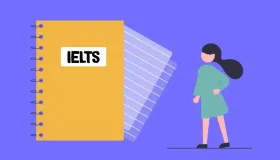Having a Lovely Time Reading Answer Passage
Having a Lovely Time Reading Answer Passage
Paragraph A. A chance to relax and leave your worries behind? For some, holidays are nothing but trouble, as the results of one survey showed.
Paragraph B. When you think about it, it's amazing that anyone gets away with a carefree holiday. It seems there is limitless potential for things to go wrong, from flight delays and lost luggage to poor accommodation.
Paragraph C. A recent questionnaire showed that a third of people who replied had a complaint about their holiday last year. And when these unhappy holiday-makers discussed the problem with their tour company, nearly half said it involved time and effort on their part to resolve things.
Paragraph D. When asked exactly what the reasons were for their dissatisfaction, top of the list was flight delays and 20 percent of holiday-makers to Europe said they had to wait up to an hour.
Paragraph E. More worrying is the fact that almost a third of holiday-makers who had complained said it was about the apartment or hotel room they had been allocated. There is an enormous variety of holiday accommodation, and we recommend that consumers look for places that have been inspected by the Tourist Boards; this way, they can have the confidence that they will get the type of accommodation they are looking for. It seems that tour companies now offer more honest, accurate brochures, though. Eighty-five percent of holiday-makers who responded to our questionnaire said the description offered by the company matched the place they visited and the facilities provided.
Paragraph F. This is good news for the industry and for holiday-makers. A holiday is a major purchase - yet it's one we can't try before we pay. All we have to go on is the brochure and it's a credit to tour operators that they now contain more detail.
OUR ADVICE
Paragraph G. DO be realistic. No one should be palmed off with a poor standard of service, food, or accommodation, even if you paid a rock-bottom price for a last-minute break. However, be reasonable - you won't get a room with the best view in town if you've paid a budget price.
DO complain to the right person. Moaning to the waiter about a week's worth of appalling food then writing an indignant letter when you get back home won't have the same impact as airing your grievances at the time.
DO get evidence for a serious problem, such as having a building site instead of the promised swimming pool below your window. Take a photo to back up your case.
DON'T write and complain for the sake of it. Letters can be powerful as long as they're about something you have a good reason to complain about.
DON'T lose your temper. Easier said than done, but you're more likely to get results if you state your case firmly, explain why you think there's a problem then suggest a reasonable solution.
Let’s explore the questions and answers of the Having a Lovely Time reading answer passage.
Having a Lovely Time Reading Answers with Sample Questions
Have you read the passage? Now, take the test and find the Having a Lovely Time Reading answers! Try to answer these questions by yourself before you sneak a peek at the answers given below.
Check Out Top 35 IELTS Reading Practice Test Questions with Answers
Below are some top 30 free IELTS Reading Practice test online questions with detailed answers to enhance your IELTS preparation online. We have provided sample passages for each test type for your reference.
- What Is Exploration Reading Answers
- Effects Of Noise Reading Answers
- The Discovery Of Baby Mammoth Reading Answers
- The Dead Sea Scrolls Reading Answers
- The Ring-Tailed Lemur Reading Answers
- Why We Need To Protect Polar Bears Reading Answers
- Nutmeg A Valuable Spice Reading Answers
- What Is Meaning Reading Answers
- Cutty Sark Reading Answers
- The Step Pyramid Of Djoser Reading Answers
- South Pole Adventurer Reading Answers
- The Future Of Work Reading Answers
- Ambergris Reading Answers
- Trees In Trouble Reading Answers
- Could Urban Engineers Learn From Dance Reading Answers
- The Flavour Of Pleasure Reading Answers
- The Value Of A College Degree Reading Answers
- Why You Should Delegate Tasks To Team Members Reading Answers
- Corporate Social Responsibility Reading Answers
- Forest Management In Pennsylvania USA Reading Answers
- Making Time For Science Reading Answers
- The Power Of Play Reading Answers
- Coastal Archaeology Of Britain Reading Answers
- How The Other Half Thinks Reading Answers
- Changes In Reading Habits Reading Answers
- The Forgotten Forest Reading Answers
- When Conversations Flow Reading Answers
- Attitudes Towards Artificial Intelligence Reading Answers
- The Ingenuity Gap Reading Answers
- A Bar At The Folies Reading Answers
- Booking A Wessex Cottages Holiday Reading Answers
- Sunset Tours Reading Answers
- Bird Migration Reading Answers
- Clutter Bugs Beware Reading Answers
- The Hidden Histories Of Exploration Exhibition Reading Answers
- Calisthenics Reading Answers







